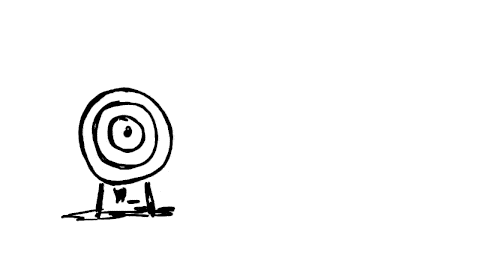You have a big goal. Great. But what if you miss it? What is the best alternative to your initial goal? Sometimes it is better than you think.

The Exact Goal
Christopher Columbus’ goal was to discover a new route to India. Instead he discovered America. This is still a reasonable achievement.
As suggested by SMART (Specific, Measurable, Action-oriented, Realistic, Time-bound) goal setting you should make your goal specific. For example, a statement like “I would like to finish the New York marathon in under four hours” is more specific than just “I would like to run faster”.
However, sometimes it is a good idea to be a bit more flexible when it comes to your goals. If you think you are heading towards India and then discover a whole new continent, this is not too bad at all. If you want to run the New York marathon in under four hours, but then you end up finishing the Berlin marathon in under three hours and thirty minutes, this might be a great alternative to your initial goal.
Increase Your Chances
Chances to win the lottery are very small. But if you do not buy a lottery ticket, chances are zero. If you buy two tickets your chances to win are twice as high, compared to only buying one ticket. No, we do not actually suggest buying lottery tickets. This is just a metaphor.
The idea is to try more and probably fail more, not only because you learn from failure but because you increase your chances. And, it trains your “try muscle”.
In his TED Talk “The Surprising Habits of Original Thinkers” Adam Grant states that great originals are the ones who fail the most, because they also are the ones who try the most.
If you recognize you will fail, you can either start again from scratch or you can think about an alternative goal you can still reach.
Plan Upfront
There are various approaches to plan your goals. You can just do what works best for you and keep it simple. A small and simple plan is better than a big and complex plan and it is also better than no plan at all. Besides your milestones and action steps you can also plan for foreseeable obstacles and possible solutions.
What happens if you recognize you cannot achieve your goal anymore, at least not with a reasonable amount of effort?
You might consider an if-then approach. Think upfront about what you would do if you cannot achieve your initial goal. What would be the best alternative? What are the criteria to give up your goal? Of course, you should not make this an easy decision. Your alternative should not just be your secret main goal. Your main goal is what you will go for and only if this really does not work out you will go for your alternative.
This if-then approach is quite powerful because it basically provides some kind of security in the form of a plan B. If you reach your goal, fine, otherwise you already know how to proceed.
Example 1:
Let’s say you would like to get a promotion and lead a team. You make a plan and prepare everything properly. As an alternative you plan to go to another company if you do not get the promotion. So, your if-then statement is the following:
If I do not get the promotion until the end of the year, then I will apply in another company.
Do not forget the deadline here. This is important because otherwise you might keep procrastinating.
This best alternative to your primary goal has several advantages.
- You stay in control, independent of the outcome.
- You already know your next step in case you cannot reach your primary goal.
- Probably you are not too disappointed in case of “failure”.
- You keep moving forward into either direction and are not stuck with the status quo.
What is the alternative to have no alternative? In our promotion example, if you do not get promoted, you obviously stay where you are. You are stuck in your career. Now, you can arrange and hope for the next chance or, you can start making a new plan. The new plan might indeed be to apply in another company. However, if you make the plan only after your promotion has been rejected, you lose a powerful trigger, the if-then trigger. Or, you might just plan to go for the promotion next year. But this can be like making the same New Year’s Resolution again every year.
Example 2:
Our second example is more about the obstacles or setbacks you might face within your goal-setting process. At some point you might feel unmotivated, frustrated or just too lazy. In this case you can make it a habit to make a phone call and talk to a friend. You will be amazed how this can help boost your motivation again.
So, the if-then statement in this case would be:
If I feel a lack of motivation, then I will call my friend Paul and have an inspiring conversation.
Example 3:
How do you feel? Sometimes we are unhappy with a certain situation, for example with a work relationship. There is one person, that is just annoying. Oh, one moment. To be more precise here, there is one person we find annoying. Anyway, our goal is to change this situation. So, we make a plan how to proactively approach the situation, to talk to the co-worker, to point out the issue and to develop possible solutions. As part of this plan we can set a deadline. If we are not able to solve the issue until a certain date, we will go ahead and do something radically different. That can be for example to get a new job or to change the department or to find another clever solution.
The if-then statement might be:
If this co-worker still interferes with my work until the end of the year (according to the notes in my journal), then I go ahead, talk to him and our boss, explain the different work styles and suggest a mutual beneficial solution with super clear responsibilities.
Be the Change and Be Open
Do not wait for change to happen, trigger the change that will help you with your goal. For example, do not wait for your promotion, go to your boss and ask for it (with the right arguments of course).
At the beginning you will always have your ideal goal in mind. However, there are alternatives that might be as good, in many cases even better. Be open and flexible to see these alternatives. And, keep moving forward.
Do you need help with your goal?
You can find more information about goal setting in our free eBook (download as PDF or ePub). If you are looking for a goal-setting app we recommend our free Android app VidaGoals.
